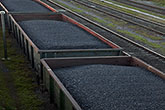Port of Antwerp limits damage during COVID-19 crisis
Published by Jessica Casey,
Editor
Dry Bulk,
The total throughput of the Port of Antwerp fell by 4.9% in 1H20 compared to the same period in 2019. After a strong 1Q20, the port experienced a decline in the transhipment of all flows of goods, with the exception of the container sector. Despite the impact of the coronavirus crisis on global production and logistics chains and a pandemic-driven drop in demand, the port remained 100% operational.
Slight recovery in breakbulk sector in June
Since mid-2019, global trade issues continue to adversely affect goods flows in the conventional breakbulk sector. This has culminated in an overall 29% decrease for the period January-June compared to 2019, with inbound and outbound flows being affected to the same extent. The throughput of iron and steel, the most important freight group within this sector, experienced its best month of 2020 in June but a total decrease of 33.1% for 1H20.
Bulk cargo declined due to reduced demand for energy
While the transhipment of coal continued to grow in 1Q20, it came to a standstill in 2Q20. This resulted in a 13.1% drop in dry bulk transhipment in January-June 2020 compared to the same period last year. This decrease is partly attributable to the growing supply of green energy, which reduced the need for coal, partly by reduced demand for coal from the steel sector and partly by a strong 2Q19. Fertilizers, which represent the largest share of dry bulk volumes, grew slightly (+1%) compared to January-June 2019.
Container traffic status quo
Container traffic increased in 1Q20, but felt the effects of cancelled sailings from April onwards. Nevertheless, for the period January-June 2020, container traffic recorded a slight increase of +0.4% in TEUs compared to the same period last year (with April and May 2019 as record months). The number of calls made by vessels decreased, but this was compensated by a higher average volume per vessel and by additional calls on top of the normal sailing schedules.
Seagoing vessels
Over the past 6 months, 6797 seagoing vessels called at Antwerp, representing a decrease of 5.6% compared to the same period in 2019. The gross tonnage of these vessels fell by 7.9% to 193 million t.
Port of Antwerp grants postponement of payment
Following discussions with the Antwerp port community about the consequences of the coronavirus crisis, the Port Authority decided to grant a postponement of payment for the shipping and inland navigation dues and for the domain concessions.
Impact coronavirus and prospects
For 3Q20, while the Port of Antwerp is still expecting blank sailings, it is also seeing the first signs of recovery and an upturn in the European economy. The Port of Antwerp is making every effort to continue to ensure the efficient functioning of the port.
Jacques Vandermeiren, Port of Antwerp CEO, said: “Port of Antwerp is a world port that follows the pace of the European and world economy. The impact of the shutdown of the global supply chain due to the coronavirus crisis has been felt from the second quarter onwards and will affect the total throughput of goods this year. The Port of Antwerp is holding up well in the Hamburg-Le Havre range because it is active in many sectors, it is not dependent on a single continent and because of its role as Europe's largest integrated chemical cluster."
Annick De Ridder, Port Alderman, added: “As the port of Antwerp, we are an important link in the chain between producers and consumers, and as such a perfect barometer for the global economy. Much will depend on how quickly industry is able to start up again and consumer confidence to return. As Antwerp port community, we remained 100% operational during this global crisis and our knowledge and experience are well documented as a valued trademark all over the world."
Read the article online at: https://www.drybulkmagazine.com/shipping/09072020/port-of-antwerp-limits-damage-during-covid-19-crisis/
You might also like
North American rail traffic sees gains
The AAR has reported US rail traffic for the week ending 20 April 2024.

